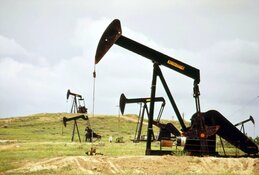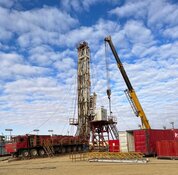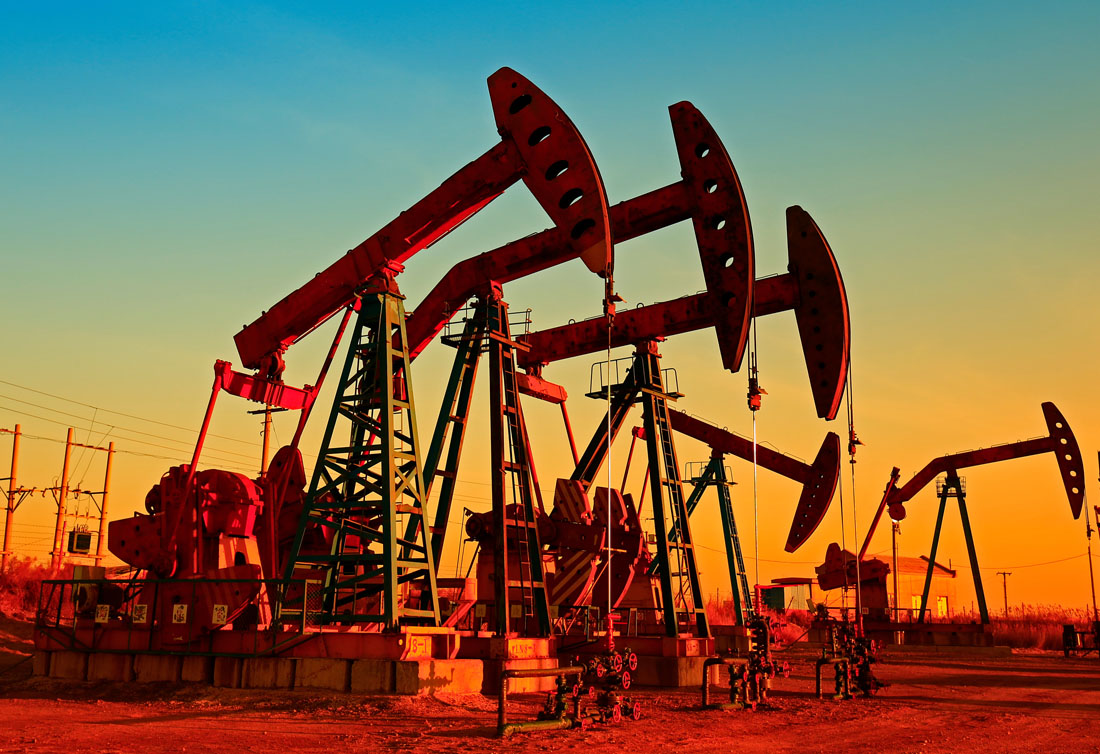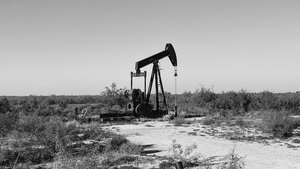In a victory speech following the close of the Iowa Caucuses last night, the first electoral event of the U.S. Republican Party's 2024 primary race, former President Donald Trump's first order of business was a promise to "drill, baby, drill — right away" if re-elected. The priority given to concerns regarding the U.S.'s energy output by the Republican frontrunner appeals to Americans' frustration with relatively elevated oil prices and an expectation that they will rebound again in the near future.
A recent DailyMail.com/TIPP Poll indicated that 49% of 1,247 U.S. adults agree with the "Drill, baby, drill" sentiment, compared to just 40% who disagree. WTI crude oil prices closed out trading yesterday near US$73.00 per barrel, well below the nearly US$78.00 average price that has been forecasted by the U.S. Energy Information Administration (EIA) for 2024.
EIA data shows that the monthly average WTI crude price between the start of 2017 and the end of 2020 was US$53.01, compared to an average of US$80.14 in the three years since — a more than 50% difference. While complex geopolitical situations and market dynamics played the largest role in that discrepancy, oil futures and the resulting impact on gasoline prices have dogged the perception of President Joe Biden's economic policies among voters. Hiked-up gas prices have fed into rampant high inflation, which makes pressure at the gas pump all the more acute. Though gasoline stockpiles have been rising aggressively as of late, the days of U.S. supply held in commercial crude inventories have thinned for seven straight weeks, reaching a three-month low of 26.1 in the most recently reported data.
A recent poll of 2,228 U.S. adults from ABC News and Ipsos showed that the approval rating for Biden's handling of the economy is just 31%, and a solid majority of 56% disapprove of his performance on this front. Gallup's Economic Confidence Index, which summarizes Americans' ratings of current economic conditions within a theoretical range of -100 to +100, was calculated at -32 last month. That's up from -40 in the prior month, and this administration's low of -58 in June 2022, but the index has now been in negative territory for 30 consecutive months. When a Republican opponent is finally nominated to take on the Democrat incumbent, Biden will undoubtedly be challenged on erratic energy policies that have undoubtedly left increasingly powerful oil majors uncertain about how they should approach U.S. production and investments.
Much has been made about U.S. oil production reaching record highs recently, but that is really only reflective of a recovery to pre-COVID levels of production. It has effectively taken the U.S. four years just to regain what was lost after a sudden collapse in energy prices hollowed out the U.S. oil and gas industry with more than 100 bankruptcies in 2020 alone. Moreover, the EIA is projecting a significant slowdown in the recent production growth throughout 2024. Though US output grew by 1 million barrels per day (bpd) in 2023, only 290,000 bpd is expected to be added to the country's output throughout this year.
MRP has noted in the past that while other regions of the world have invested in expanding their production and refining capabilities significantly over the past couple of years, the U.S. has fallen behind in its prospects for new oil and gas projects. The U.S. government's response to elevated energy prices in the post-pandemic era has been a series of mixed signals.
From January 2021 to August 2022, President Joe Biden's first 19 months in office, the Interior Department leased just 126,228 acres for oil drilling. Per The Wall Street Journal, no other administration since Richard Nixon's in 1969-1970 leased out fewer than 4.4 million acres at this stage in their first term. At roughly the same time as this drought of leases was ongoing, the administration and elements in Congress were threatening oil producers with windfall taxes if their production levels were not increased.
The discordance continued through last year with the March 2023 approval of the Willow oil drilling project on federal land in Alaska and the subsequent cancellation of seven other Alaskan oil and gas leases just six months later. Though a December auction of federal leases in the Gulf of Mexico was the largest since 2015, it only went ahead after the Interior Department withdrew a long-standing legal fight to cut six million acres from the offering. Further, this will be the last chance to bid on federally-held gulf waters until 2025.
Biden's Interior Department has made plans for just three auctions within the 2024-2029 period, the lowest number in any five-year plan since the government began publishing them in 1980. The New York Times reported last summer that the White House had proposed an increase to fees paid by companies drilling on public lands for the first time since 1920. Royalties would jump to 16.67% from 12.50%, and the minimum bid at auctions for drilling leases would be increased to US$10.00 per acre from US$2.00 per acre currently.
While the oil and gas industry has clearly not been enthused by erratic policy at the White House, the U.S.'s lack of new exploration and production was backstopped by an unprecedented multi-year drain of the country's strategic petroleum reserve (SPR). More than 291.0 million barrels had been released from the SPR between the start of 2021 and July of this year to suppress prices, leaving the amount of oil in the reserve at a 40-year low. The SPR has now received over 8.0 million barrels for storage over the past six months, with further purchases scheduled for later this year, but it is unlikely to be materially re-filled at a more aggressive rate anytime soon, given the fact that the U.S. government purchasing oil too aggressively would only add to market demand and could push up prices further, risking a re-ignition of inflationary pressures.
| Want to be the first to know about interesting Oil & Gas - Exploration & Production investment ideas? Sign up to receive the FREE Streetwise Reports' newsletter. | Subscribe |
Important Disclosures:
- Statements and opinions expressed are the opinions of the author and not of Streetwise Reports or its officers. The author is wholly responsible for the validity of the statements. The author was not paid by Streetwise Reports for this article. Streetwise Reports was not paid by the author to publish or syndicate this article. Streetwise Reports requires contributing authors to disclose any shareholdings in, or economic relationships with, companies that they write about. Streetwise Reports relies upon the authors to accurately provide this information and Streetwise Reports has no means of verifying its accuracy.
- This article does not constitute investment advice. Each reader is encouraged to consult with his or her individual financial professional and any action a reader takes as a result of information presented here is his or her own responsibility. By opening this page, each reader accepts and agrees to Streetwise Reports' terms of use and full legal disclaimer. This article is not a solicitation for investment. Streetwise Reports does not render general or specific investment advice and the information on Streetwise Reports should not be considered a recommendation to buy or sell any security. Streetwise Reports does not endorse or recommend the business, products, services or securities of any company mentioned on Streetwise Reports.
For additional disclosures, please click here.
McAlinden Research Partners Disclosures
This report has been prepared solely for informational purposes and is not an offer to buy/sell/endorse or a solicitation of an offer to buy/sell/endorse Interests or any other security or instrument or to participate in any trading or investment strategy. No representation or warranty (express or implied) is made or can be given with respect to the sequence, accuracy, completeness, or timeliness of the information in this Report. Unless otherwise noted, all information is sourced from public data.
McAlinden Research Partners is a division of Catalpa Capital Advisors, LLC (CCA), a Registered Investment Advisor. References to specific securities, asset classes and financial markets discussed herein are for illustrative purposes only and should not be interpreted as recommendations to purchase or sell such securities. CCA, MRP, employees and direct affiliates of the firm may or may not own any of the securities mentioned in the report at the time of publication.


































